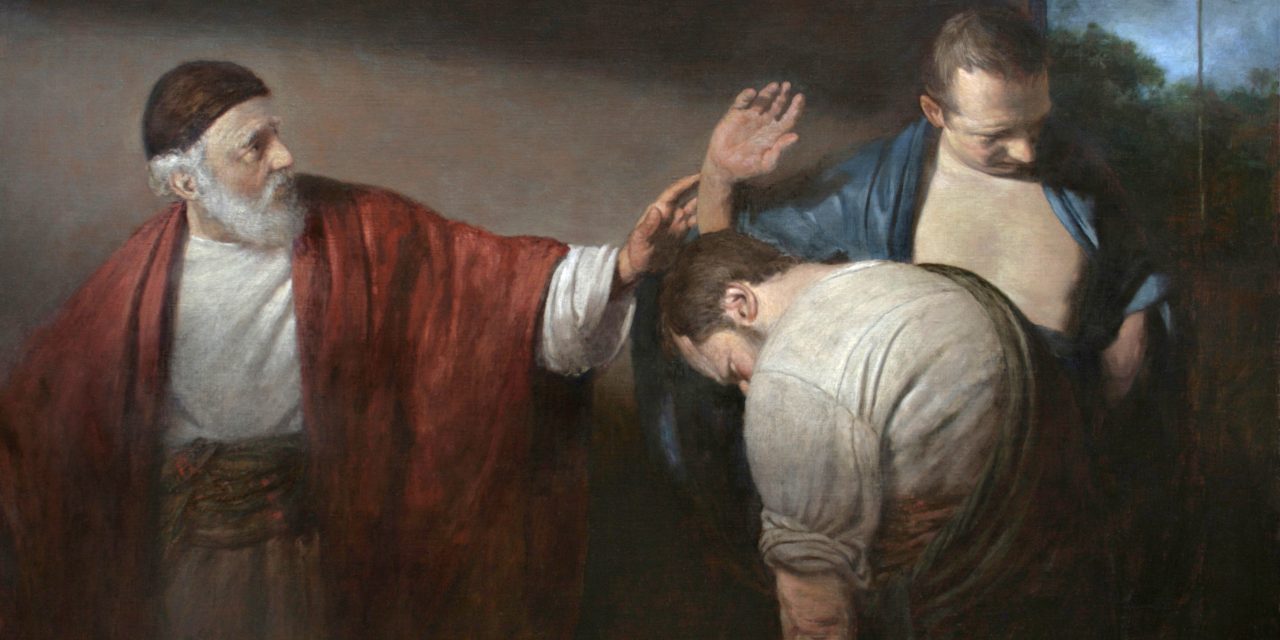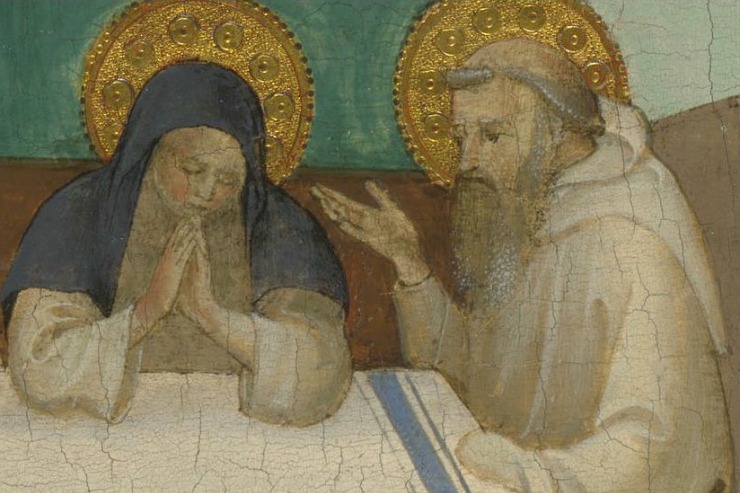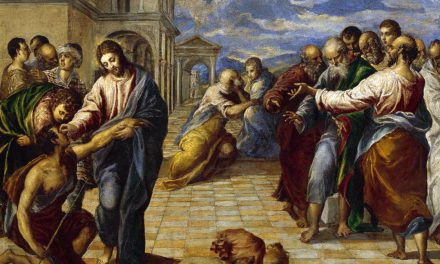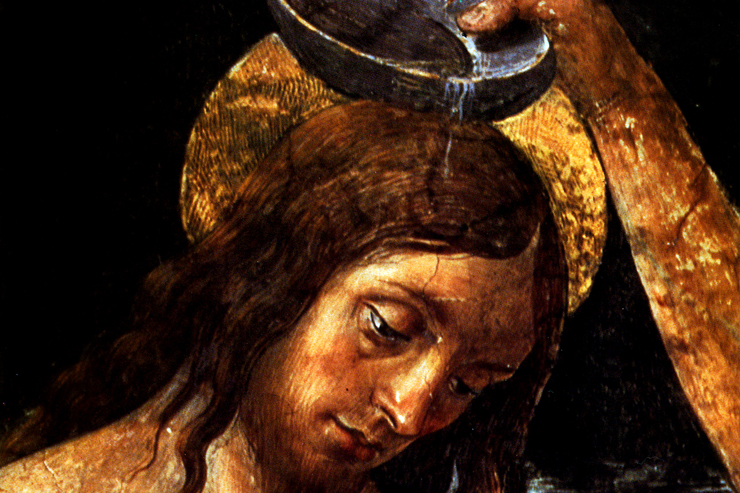This Sunday’s Gospel continues some of the themes we saw in last week’s second reading: true freedom, justice, and forgiveness. The long form choice of the Gospel includes what is perhaps one of Jesus’ most famous parables, the father and his two sons.
This is one of the best examples of convention giving a parable a title that can narrow the scope of Jesus’ message. It is most commonly referred to as the Prodigal Son, but that threatens to limit our focus on the younger son. Pope Benedict suggests speaking of it as the parable of the two brothers and the good father. This parable is about three men, not one, and today, I want to look at the figure of the older son.
We are probably pretty familiar with the story. The younger son is granted his inheritance early, by a father who perhaps knows exactly what he is going to do with it. The son, seeking freedom, ends up miserable (and hardly free). He comes home, welcomed back joyfully by his father… but not his brother.
If you hear the long form of the Gospel this Sunday, you will hear two parables – the lost sheep and the lost coin – and then the lengthy parable of the two sons. Your mind might wander before the end of the parable, but try to stay alert. The parable does not end with the prodigal son’s return home.
“Now the older son had been out in the field and, on his way back, as he neared the house, he heard the sound of music and dancing. He called one of the servants and asked what this might mean” (Luke 15:25–26).
When the older son hears that the party is for his profligate brother, he refuses to enter the house. Notice what the father does:
“and when he refused to enter the house, his father came out…” (Luke 15:28)
The two preceding parables were about seeking the lost. What is this father doing here? He is seeking his son, just as the woman sought her coin and the shepherd sought his sheep. We concentrate so often on the younger son being lost, but perhaps the older one is too.
The older brother is bitter about the lack of justice in the situation, but his language betrays something deeper in his attitude. Pay attention to the way he speaks. The older brother does not utter the word “Father,” as the younger brother did, nor does he refer to his brother as his brother, but simply “this son of yours.” Jewish Scripture scholar Amy-Jill Levine points out that even the way Jesus speaks of the sons’ actions reveals something. “Whereas the prodigal comes home to his ‘father,’ the older brother approaches the ‘house.’”
Both the servant and the father recognize the older son as a member of the family, but he doesn’t seem to share that recognition. It seems that for man years, the older son has seen himself as a servant in his father’s house.
The younger son was willing to see himself a servant but was welcomed as a son. The older son was welcomed as a son but saw himself as a servant.
Pope Benedict explains that the older son “sees only injustice. And this betrays the fact that he too had secretly dreamed of a freedom without limits, that his obedience has made him inwardly bitter, and that he has no awareness of the grace of being at home, of the true freedom that he enjoys as a son” (Jesus of Nazareth, 208-209).
And so the older son stands outside, depriving himself of the feast. The feast is not an exclusive party. He could be enjoying the fattened calf, too! But he has set himself up as judge of his father. He has decided that his father was wrong to show mercy to his brother. And so he remains physically outside and interiorly enslaved by his own bitterness, stubbornness, and love of justice.
In an address to young men in prison, Pope Benedict recalled this parable and said, “We must abandon the selfish attitude of the older son who was sure of himself, quick to condemn others and closed in his heart to understanding, acceptance and forgiveness of his brother, and who forgot that he too was in need of forgiveness” (Visit to Casal del Marmo, Prison for Minors, Rome, March 18, 2007).
The parable does not have an end. We don’t know what happens with the older brother, because the ending is up to the listeners. In a sense, the older brother is standing right in front of Jesus–the scribes and the Pharisees. It is up to them to decide the end of the parable.
And it is up to us. Like the other parables, we cannot let it stay in the past, as a reflection on the Pharisees. We must bring it home to ourselves today.
Are we the younger son who has left the father’s house in search of freedom? If so, ask God for the courage to return home. He is waiting.
Are we the older son who sees life only through the lens of justice and servitude? If so, ask God to give you his heart of mercy, a heart where obedience flows from love.
The tragedy of the first son is that he did not know the riches of life he possessed in his father’s house, and he left. The tragedy of the second is not that different; he did not know the riches he possessed, either. During his time at home, he should have been growing more like his father! Let us thank the Father for making us sons and daughters, and let us ask the Father to make us more like him: merciful and gracious, slow to anger, and abounding in mercy.














